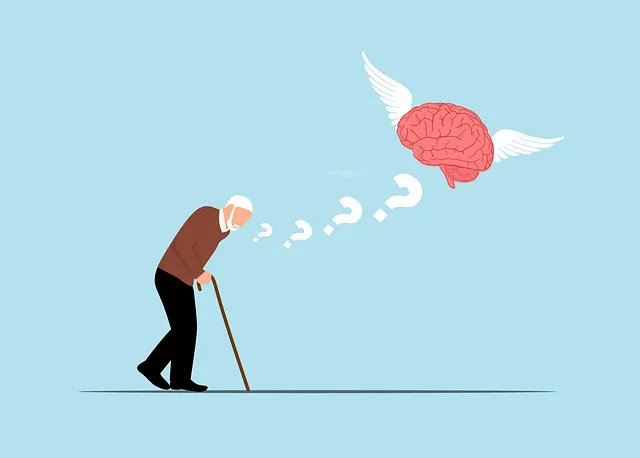Centennial's Kaiser Permanente excels in mental health due to its holistic approach focusing on physical and emotional well-being. Identifying triggers, cognitive therapies like CBT, mindfulness practices, and self-care routines empower individuals to manage moods and build resilience. Kaiser's comprehensive programs, including communication strategies and wellness coaching, promote open dialogue, stress management, and balanced lifestyles, making it an effective solution for Centennial communities' mental health needs.
“Discover effective mood regulation strategies that can transform your well-being. This comprehensive guide explores powerful techniques, from the Kaiser Approach and centennial awareness tactics to cognitive reshaping and mindfulness practices. Learn how to identify triggers, cultivate a positive mindset, and implement lifestyle changes for sustained mental health. Uncover the potential of these methods, especially the Kaiser model, as proven tools for navigating emotional landscapes and achieving a balanced, fulfilling life.”
- Understanding Mood Regulation: The Kaiser Approach
- Identifying Triggers: Centennial Strategies for Awareness
- Cognitive Techniques: Shaping Your Mental Landscape
- Mindfulness Practices: Centering Your Mind and Body
- Lifestyle Modifications: Nurturing Well-Being on a Daily Basis
Understanding Mood Regulation: The Kaiser Approach

Understanding Mood Regulation: The Kaiser Approach
The Kaiser approach to mood regulation focuses on holistic well-being, emphasizing both physical and mental health as interconnected components. It promotes the idea that emotional stability is achieved when one’s overall health—including nutrition, exercise, sleep, and stress management—is optimized. This comprehensive strategy recognizes that a person’s mental state significantly impacts their daily functioning, and vice versa. By adopting healthy habits and Emotional Well-being Promotion Techniques, individuals can enhance their resilience to life’s challenges.
The Kaiser method encourages the development of a Self-Care Routine for Better Mental Health. This involves dedicating time to activities that nourish both mind and body, such as regular physical activity, mindfulness practices, and adequate sleep. Building resilience is another key aspect, teaching individuals to adapt and bounce back from setbacks, thereby fostering a sense of control over their emotional state. Through these integrated approaches, Kaiser aims to help folks lead happier and more fulfilling lives.
Identifying Triggers: Centennial Strategies for Awareness

Identifying triggers is a key first step in mood regulation strategies, and it’s an area where Kaiser’s Centennial approach shines. By fostering awareness, individuals can better understand their emotional responses to various stimuli. This proactive mindset enables folks to navigate their mental health journeys effectively. The Kaiser Centennial Strategies encourage mindful reflection, helping one recognize patterns and environments that impact their emotional state.
In the context of mental well-being, a community outreach program implementation can play a vital role. Training healthcare providers with cultural competency ensures they’re equipped to guide patients through these processes. This holistic approach not only aids in individual emotional regulation but also contributes to improving access to quality mental health services within diverse communities.
Cognitive Techniques: Shaping Your Mental Landscape

Cognitive techniques play a pivotal role in shaping one’s mental landscape and have proven to be effective tools for Kaiser Permanente, a renowned healthcare provider known for its commitment to holistic wellness, including mental health services. By focusing on your thoughts and beliefs, these strategies empower individuals to manage their moods and promote emotional well-being. Through Cognitive Behavioral Therapy (CBT), for instance, patients learn to identify and challenge negative thought patterns, replacing them with more positive and realistic perspectives. This process is akin to cultivating a new perspective garden where each thought is a seed, carefully nurtured to grow into a flourishing mental landscape.
Emotional Intelligence and self-care practices are integral aspects of this cognitive journey. By understanding and managing emotions, individuals can better navigate life’s challenges. Kaiser Permanente encourages patients to adopt various emotional well-being promotion techniques, such as mindfulness meditation, journaling, and engaging in physical activities, which have been scientifically linked to reducing stress and improving mood regulation. These self-care practices are like tending to a garden, ensuring each thought and emotion receives the attention it needs to flourish into a balanced and resilient mental state.
Mindfulness Practices: Centering Your Mind and Body

Mindfulness practices have emerged as a powerful tool for mental health, with many finding them particularly effective through programs like Kaiser’s Centering program. By centering both your mind and body, mindfulness helps to cultivate awareness and presence in the current moment, enabling better emotional regulation. This simple yet profound act of focusing on breath, sensations, and thoughts can significantly enhance resilience building, which is crucial for navigating life’s challenges.
In light of this, mindfulness becomes a valuable asset in trauma support services, helping individuals process and release past traumas. Moreover, the consistent practice of mindfulness has been shown to influence mental health policy analysis and advocacy, underscoring its potential impact on broader societal levels. Kaiser’s Centering approach, therefore, not only benefits individual mental health but also contributes to a more comprehensive understanding and approach to mental health policy.
Lifestyle Modifications: Nurturing Well-Being on a Daily Basis

Incentivized by a growing emphasis on holistic well-being, Lifestyle Modifications play a pivotal role in mood regulation strategies. Organizations like Kaiser, renowned for their comprehensive healthcare services, highlight the significance of daily habits in mental health maintenance. Incorporating regular exercise, balanced nutrition, and adequate sleep into routines can significantly enhance emotional resilience. Additionally, engaging in mindfulness practices, such as meditation or journaling, empowers individuals to cultivate self-awareness and healthy coping mechanisms.
Centennial communities benefit from Kaiser’s Mental Health services that integrate Communication Strategies and Coping Skills Development programs. These initiatives encourage open dialogue about mental health challenges, fostering supportive environments. Furthermore, Mental Wellness Coaching Programs Development within these organizations equips members with tools for stress management, emotional regulation, and resilience-building, ultimately contributing to a thriving and balanced lifestyle.
Mood regulation, as explored through the Kaiser approach and centennial strategies, offers powerful tools for enhancing mental health. By understanding triggers, employing cognitive techniques, adopting mindfulness practices, and making lifestyle modifications, individuals can effectively navigate and manage their emotional states. Integrating these strategies into daily routines fosters resilience, promotes well-being, and enables a more balanced and fulfilling life. For those seeking effective methods to improve mental health, the Kaiser model stands as a robust framework, guiding individuals towards better emotional regulation and overall wellness.






